© 2021 Olga López
© 2021 Urantia Association of Spain
Newsletter of the Urantia Association of Spain
Light and Life — November 2021
¶ In this number
- Editorial Light and Life - November 2021
- Works – our recommendations of the month
- History and teachings – Chronicles of the life of Jesus
- A Children’s Guide to The Urantia Book: Free Will and Faith
- Books – our recommendations of the month
- Other spiritual growth books
- Video – our recommendation of the month
- Navigating through life – The parable of salt
- My favorite paragraph
- Urantia Questionnaire: Antonio Moya
- Iberoamerican Urantiathon – November 20 and 21
- Urantia talks are back
- About the Light and Life newsletter
¶ Editorial Light and Life – November 2021
Maria Jose Sanchez Santamaria
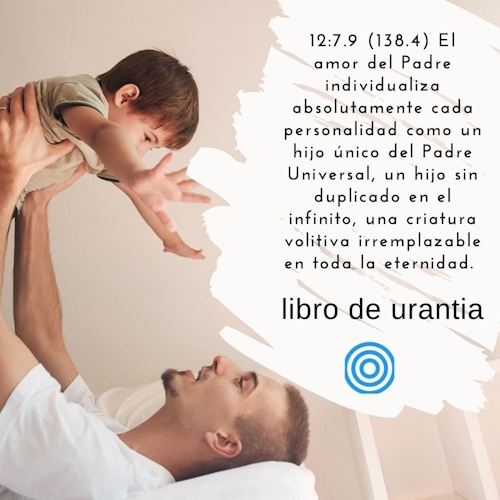
Unmatched families
In our daily life, where the avalanche of information that surrounds us stuns us, the “experts” pontificate without delving into all the issues and where acceleration is the current trend, everything leads us towards “outer life”, that is, towards the which is sensory, material, cause-effect relationships. Everything is answers and there is almost no space left for questions that do not have a quick answer, that require depth, to reach the depth of the world. But if there is external life, by contrast there is internal or supermaterial life. Don’t you think so, dear reader?
The art of inner life is subtle and extensive. As The Urantia Book understands it, it refers to a journey that can go from self-knowledge to fusion with the Thought Adjuster and the subsequent development as absonite spiritual beings, resorting to meditation, prayer and worship in lonely, true, but above all (as we will see in several examples below), living our existence as a family, as a group.
The development of this precious inner life leads to something ineffable that is within us, an emptiness, something unnameable, unreachable… but that gives meaning to our lives: divinity.
¶ Works – our recommendations of the month
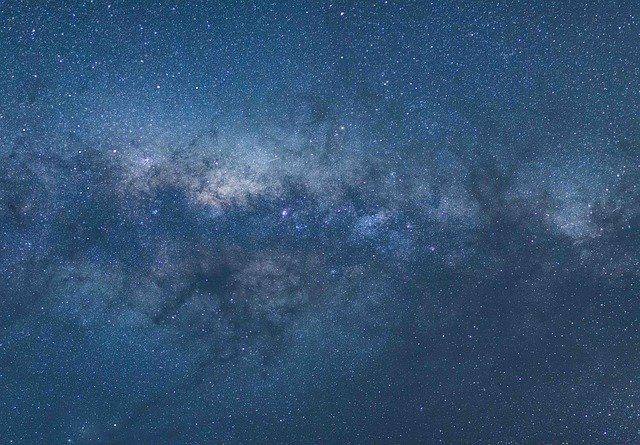
Cosmology of the universe of universes (Tamila Ragimova) (also on the association’s website)
The author, PhD in Physics and retired university professor, addresses the cosmology of The Urantia Book with a complete declaration of intent: «The greatest of all human progress, which occurred in the 20th century on Earth is the fifth revelation of our Universal Father and of the heavenly life described in the documents of The Urantia Book, which offers us a model of the universe of universes. A model so complex that it could never be discovered on Earth by any scientific method, even the most advanced we have."

Neutrinos, neutrons and neutron stars (Ken Glasziou) (also on the association’s website)
In this work, translated into Spanish by Jan Herca, what is said in the book about these subatomic particles (using terminology from the time when the revelation occurred) is compared with what science has discovered from the 1930s to today about them, which confirms the scientific knowledge that appears in The Urantia Book and that had not yet been discovered by the science of that time.
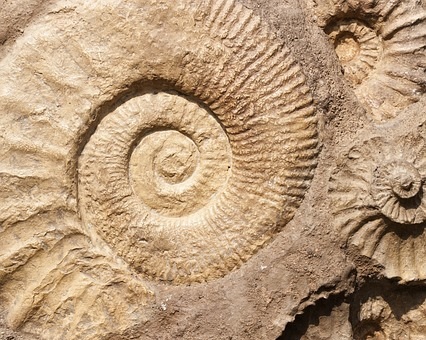
One Man’s Evolutionary Adventure Ride (Anonymous) (also on the association’s website)
This extensive work was published by the magazine The Fellowship Herald, of the Urantia Book Fellowship, and translated into Spanish by Carmelo Martínez. Its author is a scientist who asked to remain anonymous. In his introduction he says, among other things: “Although the primary purpose of this article is not to draw parallels between today’s science and The Urantia Book, the article nevertheless describes the growing overlap between recent scientific research.” evolutionary theory and the key concepts relating to evolution presented in The Urantia Book." Do you dare to walk with the author through the secular debate between evolution and creation?
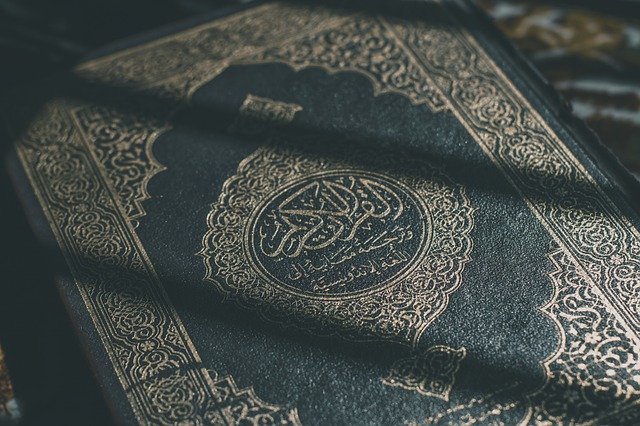
The Quran under the spiritual lights of The Urantia Book (Omar Delgado) (also on the association’s website)
We find ourselves here with an interesting work, which addresses a subject that does not exactly abound among the secondary works on The Urantia Book. In the words of its author: «This compilation of quotations from the Qur’an and The Urantia Book has the purpose of broadening the spiritual horizons of every sincere believer in the Truth of this nascent faith of the 6th century AD. by Muhammad. Jesus said that the Father always sends messengers or revelations to each generation to humanity without forgetting anyone, to amplify and refresh the spiritual message of the Kingdom."
¶ History and teachings – Chronicles of the life of Jesus
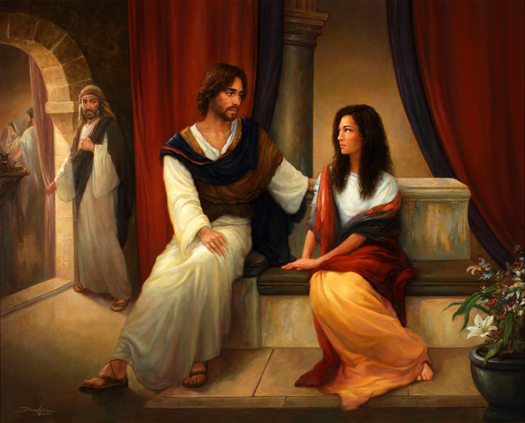
JOURNALISTIC ACCOUNT OF THE LIFE AND TEACHINGS OF JESUS ACCORDING TO THE URANTIA BOOK
We present the following installment of the chronicles of the life of Jesus, which on this occasion contains what the revealers tell us in document 127. Within the PDF you will see a button from which you can access the text of the document from the Foundation’s website Urantia.
¶ A Children’s Guide to The Urantia Book: Free Will and Faith

We continue to review the secondary work A Children’s Guide to The Urantia Book, by Mary Livingston. This is the next chapter, devoted to the themes of free will and faith, and it begins like this:
“God the Father lets us choose the way we live our lives. This is what is called free will or freedom. God never forces us to do anything. Heavenly Father loves us all. We must choose to accept his love.
Download the entire chapter in PDF format
¶ Books – our recommendations of the month
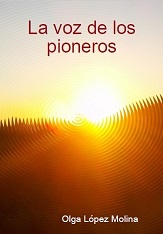
The voice of the pioneers (Olga López)
In the words of its author, “The voice of the pioneers arose when I developed the way in which I conceive an ideal society that, without having yet reached the stage of light and life, has solved a large part of the problems that plague us in the last century. XXI. To do this, I based myself on many of the ideas that appear in document 72, “The government of a neighboring planet”, which emerge as we get to know Irene, the protagonist of the story. Throughout the book we get to know his daily life and also what he thinks, especially in contrast to the investigations he is doing of the life of humanity in the 21st century.”
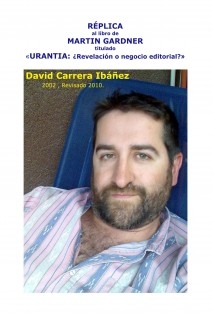
Reply to Gardner’s book (David Carrera)
The title of this short essay leaves no room for doubt about its content. Its author, who was a representative of Urantia Foundation in Spain for a few years, responds chapter by chapter to the arguments set forth in Martin Gardner’s book Urantia: Revelation or Publishing Business? and makes it clear that he has not been honored in his criticism towards The Urantia Book, mainly because his attack is directed towards the people involved in the revelatory process that resulted in The Urantia Book instead of looking for possible inconsistencies or contradictions in the content itself. Personal attacks that, by the way, are revealed without much foundation.
¶ Other spiritual growth books

Jonathan Livingston Seagull (Richard Bach)
John Seagull was a normal seagull, like so many others, who, fed up with the monotonous and simple life of normal seagulls, dared to go further and fly like no other seagull in the Flock had ever done. For this reason, she suffered marginalization and exile, and had to continue her aerobatics practices alone, experiencing progress that took her to other planes of existence. It was not an extraordinary seagull: what she did anyone else could have done. You don’t have to be anyone out of the ordinary to grow and progress. But the Flock, when Juan returned to teach other seagulls what he had learned, believed that he was a supernatural seagull that worked miracles, they did not understand what his mission was. Some, however, understood. And that is a silver lining.

The Perennial Philosophy (Aldous Huxley)
Some say that if The Urantia Book did not exist, this would be the indisputable bedside book for all seekers of “the divine Basis”, which is how its author calls God. This book contains many quotes from authors from different times and cultures related to God, such as this one: “Among the trinities in which the Ineffable manifests itself, there is the trinity of the Good, the True and the Beautiful”.
¶ Video – our recommendation of the month
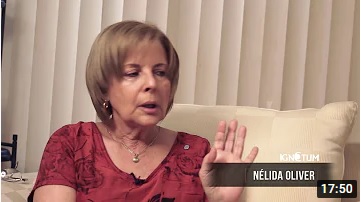
The Urantia Book – Interview with Nélida Oliver
In this video from the channel Navegantes del Cosmos Plus there is an interview by ufologist Jaime Rodríguez with Nélida Oliver, a well-known and veteran Argentinian reader living in Guayaquil (Ecuador), who has spent decades disseminating the teachings of the book wherever she goes. opportunity arises. This interview is an interesting example of explaining the teachings and circumstances of the book to those who do not know it, especially those interested in ufology.
¶ Navigating through life – The parable of salt

The parable of the salt
The old teacher asked his young disciple, who was very sad, to fill his hand with salt, put the salt in a glass of water and drink.
“How does it taste?” the teacher asked.
“Strong and unpleasant,” replied the young apprentice.
The teacher smiled and asked him to fill his hand with salt again. Later, he led him silently to a beautiful lake, where he asked the young man to spill the salt.
The old wise man then ordered him:
“Drink some of this water.”
As the water trickled down the young man’s chin, the teacher asked him:
“How does it taste?”
“Nice,” the young man replied.
“Do you taste the salt?” the teacher asked.
“No,” the young man replied.
The teacher and the disciple sat down and contemplated the beautiful landscape. After a few minutes, the wise man told the young man:
—Pain exists, but it depends on where we place it. When you feel pain in your soul, you must increase the sense of everything around you. We have to stop being the size of a glass and become a big, wide and serene lake.
(Zen parable)
¶ My favorite paragraph
Santiago rodriguez
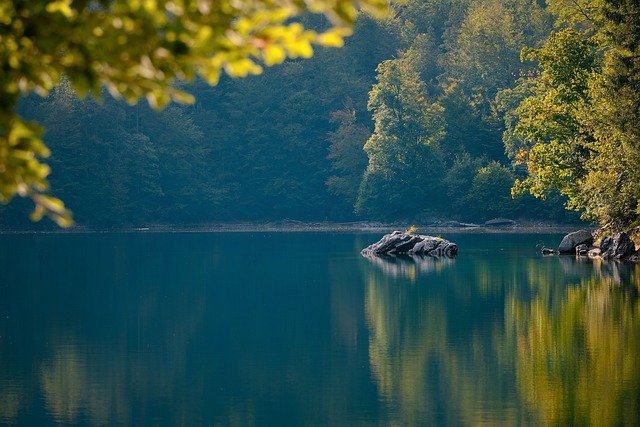
Beyond any type of belief (even atheism is a belief), our society drives us to seek happiness.
There are even those who think that the greatest achievement of the human being is to be able to smile, to stay happy even in the face of adversity, and that is something that I also share.
The achievement of happiness is the maximum expression of our achievement as a human being, and is usually accompanied by a clear awareness that its achievement must go hand in hand with trying every day to achieve an improved version of ourselves, that is to say , the achievement of our evolutionary improvement as a human being, in short, the search for perfection.
And in our search we would like to receive some indication, some hint of where we should investigate, of how we should approach that much desired “happiness”.
Allow me to propose this paragraph from The Urantia Book, which gives us a magnificent recipe to achieve our purposes:
When my children once become self-conscious of the assurance of the divine presence, such a faith will expand the mind, ennoble the soul, reinforce the personality, augment the happiness, deepen the spirit perception, and enhance the power to love and be loved. (UB 159:3.12)
They invite us to a barter, to an exchange: if we make the decision to accept the revelation that there is a divine presence in us and in our fellow men, and consciously and freely decide to let this faith (belief in action) work in our life, in return we will have not only that happiness that we so desire as individual beings and as a society, but also a lot of extra benefits.
Simple and easy, right?
¶ Urantia Questionnaire: Antonio Moya
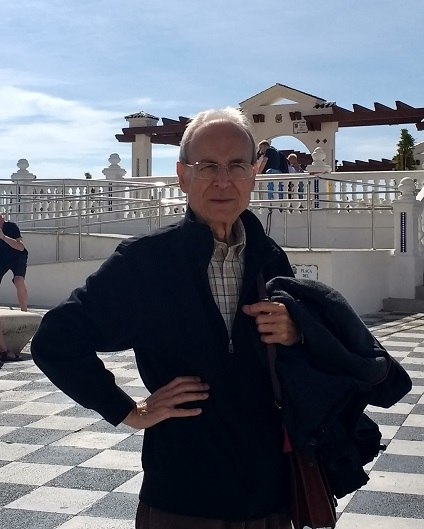
Antonio Moya Cerpa lives in Seville. He is retired and has three children. He has been reading The Urantia Book for 43 years. He was a founding member of the Seville study group and translator of the European edition of The Urantia Book.
- How did you get to The Urantia Book and why do you think you found it?
It was the book that found me, not I him. He came to meet me. I had done my part of the journey: I had looked everywhere for answers to my questions, I had read many books and magazines on revelations, spiritualism, ufology, contactees, etc. One fine day in 1978, a very investigative friend told me that he had bought The Urantia Book in English, and spent several weeks telling me by phone every morning what he had read the night before. The topic interested me more and more and I finally decided to buy the book. Since I didn’t know enough English to read it in that language, I ordered it in French from its translator, Jacques Weiss, in Paris.
- What was your first impression when reading it?
It’s been so long that I barely remember. But right away I noticed or perceived that it was something totally different from everything I had read up to then.
¶ Iberoamerican Urantiathon – November 20 and 21
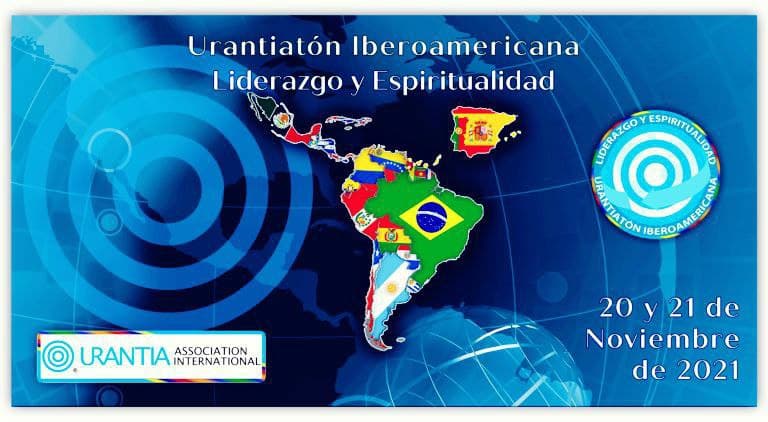
Urantia Association International will offer its second Ibero-American Urantiathon on the theme “Leadership and Spirituality”. The event will take place on Saturday 20 and Sunday 21 November 2021 for 8 hours each day. Presentations will be presented in Spanish or Portuguese, with simultaneous translation into English, Spanish and Portuguese.
The program will feature presentations by students of The Urantia Book from all over Latin America (Portugal, Spain, Brazil and the rest of Latin America). Presentations will begin both days at 8:00 a.m. and end at 4:00 p.m. (New York time). At the end you can see the schedules by country.
The theme of this Urantiathon will offer a wide and interesting range of views on the challenges of leadership in the Urantia movement, service, spirituality, the reality of religious experience, leadership in everyday life, and more.
The event will take place on Zoom and will be broadcast live via Facebook. Registration to access this Urantiathon will be enabled shortly (be alert on social networks). We hope you can attend this new series of presentations.
Schedule by country:
Germany, Spain, Italy, France, the Netherlands: 2:00 p.m. to 10:00 p.m.
Argentina, Brazil, Chile, Uruguay, Paraguay: 10:00 a.m. to 6:00 p.m.
Arizona: 6:00 a.m. to 2:00 p.m.
Atlanta, Miami, New York, Cancun, Bolivia, Peru, Colombia, Ecuador: 8:00 a.m. to 4:00 p.m.
Venezuela, Puerto Rico, Dominican Republic: 9:00 a.m. to 5:00 p.m.
Mexico, Costa Rica, El Salvador, Guatemala, USA Central Time: 7:00 a.m. to 3:00 p.m.
Portugal: 1:00 p.m. to 9:00 p.m.
Free and free entry.
¶ Urantia talks are back

Next Friday, November 5 at 7:00 p.m. we will meet again in the Zoom room of the Urantia Association of Spain to discuss the following topic:
Love versus Justice: how does the Father harmonize these two attributions? Do you think there can be a purgatory?
¶ About the Light and Life newsletter

Light and Life is the newsletter of the Urantia Association of Spain. From 2005 to 2016 it was published in PDF format and distributed by mail and email to the association’s reader list, but it is currently distributed in newsletter format from content in HTML format.
If you want to receive the newsletter in your email, contact the association to subscribe to the mailing list.
All papers and news from readers and study groups are welcome, so if you want to share any side work, writing, outline, image, etc., you can send it to the association and we will publish it previous evaluation of its suitability. Likewise, the Communication commission of the board of directors of the Urantia Association of Spain reserves the right to edit it so that it meets minimum spelling quality.